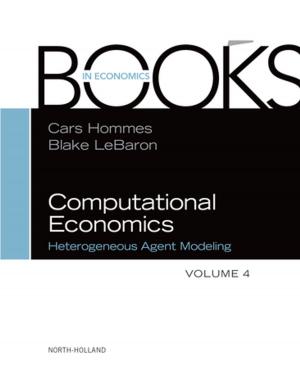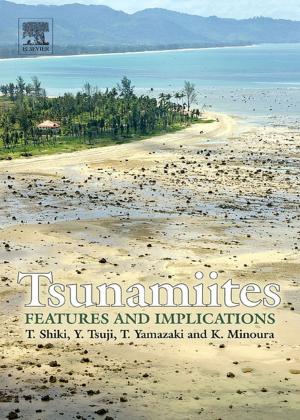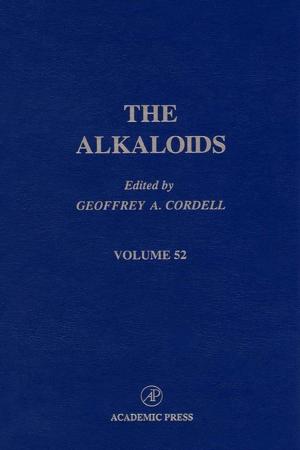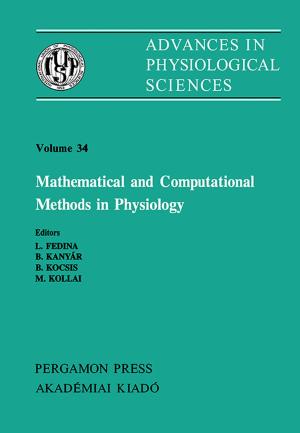Compositional Grading in Oil and Gas Reservoirs
Nonfiction, Science & Nature, Science, Earth Sciences, Geology, Technology, Power Resources| Author: | Rogerio Oliveira Esposito, Pedro Henrique Rodrigues Alijó, Jose Antonio Scilipoti, Frederico Wanderley Tavares | ISBN: | 9780128124536 |
| Publisher: | Elsevier Science | Publication: | May 26, 2017 |
| Imprint: | Gulf Professional Publishing | Language: | English |
| Author: | Rogerio Oliveira Esposito, Pedro Henrique Rodrigues Alijó, Jose Antonio Scilipoti, Frederico Wanderley Tavares |
| ISBN: | 9780128124536 |
| Publisher: | Elsevier Science |
| Publication: | May 26, 2017 |
| Imprint: | Gulf Professional Publishing |
| Language: | English |
Compositional Grading in Oil and Gas Reservoirs offers instruction, examples, and case studies on how to answer the challenges of modeling a compositional gradient subject. Starting with the basics on PVT analysis, applied thermodynamics, and full derivations of irreversible thermodynamic-based equations, this critical reference explains gravity-modified equations to be applied to reservoirs, enabling engineers to obtain fluid composition at any point of the reservoir from measured data to create a stronger model calibration.
Once model-parameters are re-estimated, new sensibility can be acquired for more accurate modeling of composition, aiding engineers with stronger production curves, reserve estimations, and design of future development strategies. Multiple examples and case studies are included to show the application of the theory from very simple to more complex systems, such as actual reservoirs influenced by thermal diffusion and gravity simultaneously.
Other example include a layer for which asphaltene precipitation takes place in the reservoir and three –phase flash algorithms for liquid-liquid-vapor equilibrium calculations, detailing the techniques necessary to ensure convergence.
The book combines practical studies with the importance in modeling more complex phenomena, filling a gap for current and upcoming reservoir engineers to expand on solutions and make sense of their reservoir’s output results.
- Presents a deeper level of detail on the heterogeneity composition and thermo-physical properties of petroleum fluids in the reservoir
- Includes tactics on how to Increase reliability of reservoir simulation initialization, with practice examples at the end of each chapter
- Helps readers make sense of compositional grading, with coverage on both theory and application that fulfill a gap in research on reservoir simulation
Compositional Grading in Oil and Gas Reservoirs offers instruction, examples, and case studies on how to answer the challenges of modeling a compositional gradient subject. Starting with the basics on PVT analysis, applied thermodynamics, and full derivations of irreversible thermodynamic-based equations, this critical reference explains gravity-modified equations to be applied to reservoirs, enabling engineers to obtain fluid composition at any point of the reservoir from measured data to create a stronger model calibration.
Once model-parameters are re-estimated, new sensibility can be acquired for more accurate modeling of composition, aiding engineers with stronger production curves, reserve estimations, and design of future development strategies. Multiple examples and case studies are included to show the application of the theory from very simple to more complex systems, such as actual reservoirs influenced by thermal diffusion and gravity simultaneously.
Other example include a layer for which asphaltene precipitation takes place in the reservoir and three –phase flash algorithms for liquid-liquid-vapor equilibrium calculations, detailing the techniques necessary to ensure convergence.
The book combines practical studies with the importance in modeling more complex phenomena, filling a gap for current and upcoming reservoir engineers to expand on solutions and make sense of their reservoir’s output results.
- Presents a deeper level of detail on the heterogeneity composition and thermo-physical properties of petroleum fluids in the reservoir
- Includes tactics on how to Increase reliability of reservoir simulation initialization, with practice examples at the end of each chapter
- Helps readers make sense of compositional grading, with coverage on both theory and application that fulfill a gap in research on reservoir simulation















